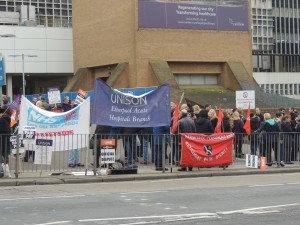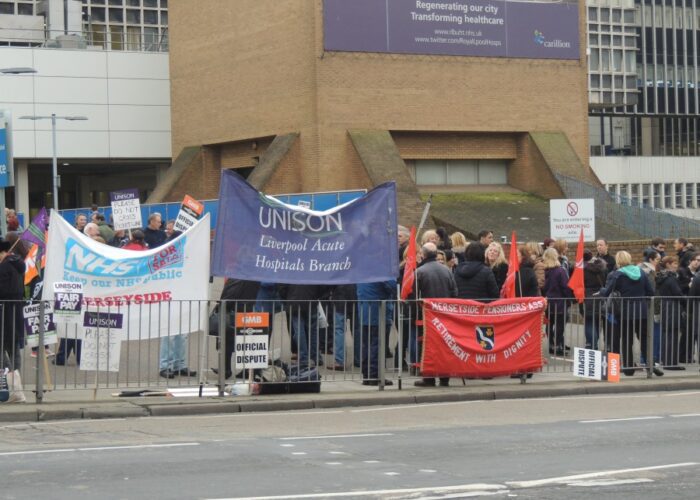
Merseyside NHS workers joined thousands across the UK today as they staged a second four-hour strike in an ongoing protest over pay.
Eleven unions, including UNISON and UNITE, walked out in protest over the decision not to implement a 1% rise for all staff recommended by a pay review body.
Outside the Royal Liverpool University Hospital, workers gathered from 7am to show their support.
UNISON member Gabby Platt told JMU Journalism: “We want to be listened to. No-one wants a strike but we’re being forced to by the government because they aren’t listening. The unions have tried to compromise but it’s got us nowhere.”
The industrial action did not affect urgent care, however some pre-booked outpatient appointments and non-emergency surgery and operations were delayed.
Speaking of the public support throughout the morning, Ms Platt added: “It’s been fantastic. The buses and cars keep tooting their horns.”
Video report by Hannah Perselli, JMU Journalism TV
The strike will be followed by up to six days of work-to-rule which will include members claiming pay for extra hours or refusing to work overtime. All staff are also set to take breaks when they are entitled to.
Denise Dougherty from UNISON told JMU Journalism: “We are here for fair pay for all NHS workers. We want to prove to the government about a fair wage for all workers and we care about our patients and won’t stand by and let the government get away with it any longer.”
The current dispute over pay in the NHS is the first to involve strike action for over 30 years and workers also took industrial action last month in a four-hour strike as part of this pay dispute.
A Department of Health spokesman told the BBC: “NHS staff are our greatest asset and we want to make the current pay system fairer – which is why we have put forward proposals that would guarantee all staff would get at least a 1% pay rise this year and next, but these have been rejected by the unions.
“We have taken tough decisions to increase the NHS budget, but we can’t afford a consolidated pay rise in addition to increments without risking 10,000 frontline jobs.”

